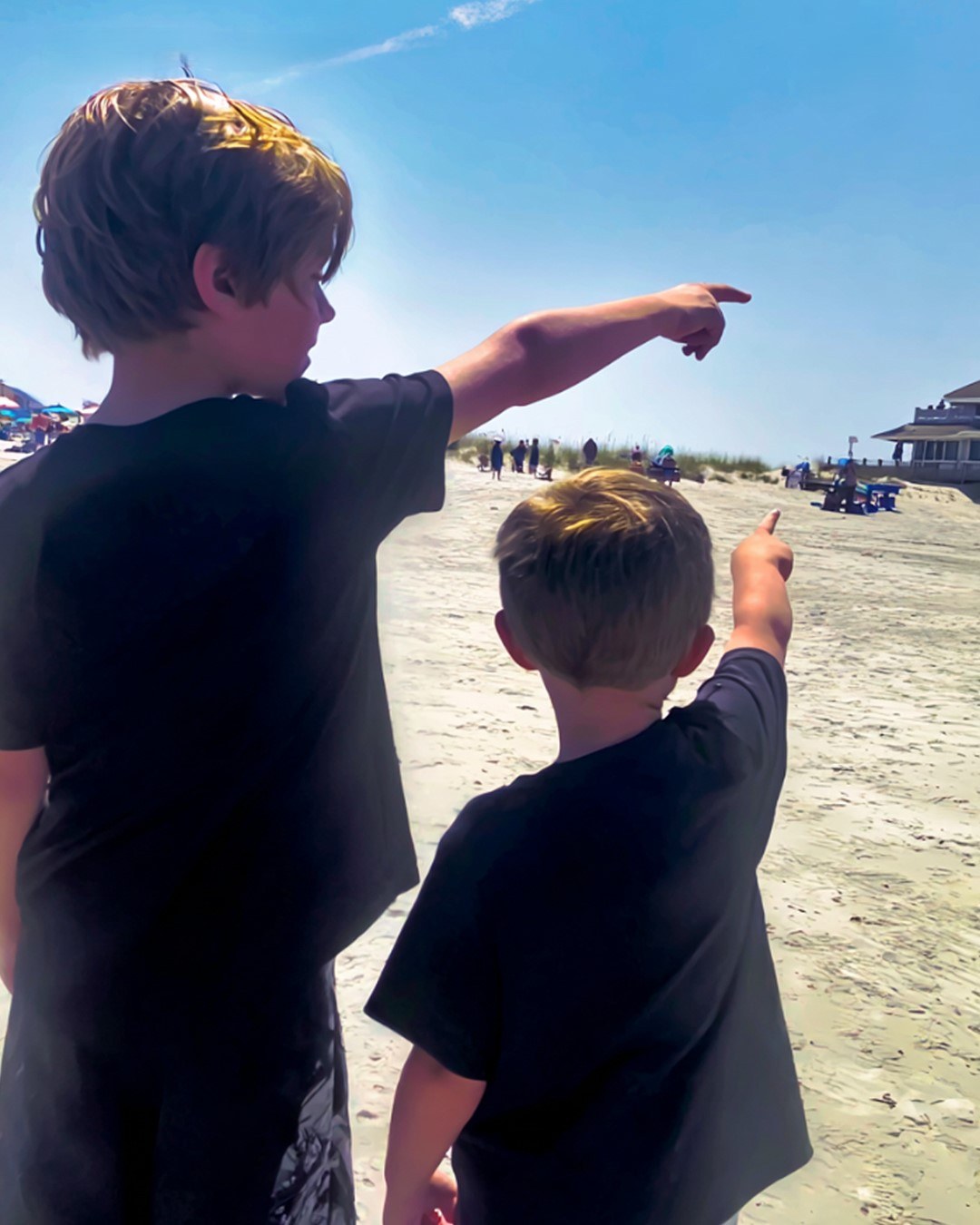Georgia was at the beach with her grandkids when they suddenly pointed toward a nearby café. Her heart skipped a beat as they shouted, “Grandma, look—that’s our mom and dad!”
Inside the café sat a couple who looked strikingly like Monica and Stephen—the daughter and son-in-law Georgia had buried two years earlier after a tragic car crash. What followed would unravel everything she thought she knew.
Grief is a fog. Some days, it’s a dull ache; other days, it knocks the breath out of you. For two years, Georgia had tried to create a life of quiet stability for her grandsons, Andy and Peter, holding their world together after their parents’ death. Then, one summer morning, an anonymous letter arrived with five words written in shaky handwriting: “They’re not really gone.”
Her hands trembled as she read it. A surge of hope clashed with a wave of dread. She had convinced herself she’d made peace with the loss—this letter shattered that fragile calm.
She almost threw it away—until her phone buzzed. A transaction alert: Monica’s old credit card had just been used—$23.50 at a local coffee shop. The same card that had been untouched in a drawer since the accident. Puzzled, Georgia called the bank. The representative, Billy, told her the charge had been made with a virtual card connected to the account. Stranger still, it had been activated a week before Monica’s supposed death.
Chilled, Georgia reached out to her friend Ella. She told her about the letter, the charge, the unsettling possibilities. Ella tried to offer rational explanations, but deep down, they both felt something larger at play.
That Saturday, Georgia took the boys to the beach. Ella came along to help watch them while Georgia tried to collect her thoughts. She had the letter in her pocket, its weight heavier than it looked. Then came the shout: “Mom! Dad!”
Across the sand, at a café by the boardwalk, a woman with Monica’s familiar dyed hair and a man who moved just like Stephen—same posture, same energy—sat together sharing fruit. Georgia’s heart dropped. She asked Ella to stay with the children and followed the pair at a distance.
The couple walked toward a small cottage wrapped in grapevines. They moved like people with secrets—close, whispering, occasionally laughing. The woman tucked her hair behind her ear exactly the way Monica used to. The man limped slightly—just like Stephen had after a college sports injury.
Georgia froze when the man called the woman “Emily.” She waited by the fence, breath shallow, then called 911.
Summoning all her strength, she approached the house and rang the bell. Monica opened the door—and went pale.
Stephen appeared behind her. The silence between them pulsed with betrayal. But before anything could be said, sirens began to wail in the distance.
“How could you?” Georgia’s voice cracked, grief and fury intertwining. “You left your own children. Do you even understand what you did to us?”
Two officers arrived, cautiously assessing the scene—unsure what kind of case this even was.
Monica and Stephen—now calling themselves Emily and Anthony—began to explain, haltingly.
“It wasn’t supposed to happen like this,” Monica said. Her voice shook. “We were drowning. The debts, the threats… the loan sharks wouldn’t stop. We thought disappearing would protect the kids. That they’d be safer without us.”
Stephen added that the danger wasn’t just financial—they were being followed, threatened. Faking a car crash off a cliff had seemed like the only way out.
“I never stopped thinking about them,” Monica whispered. “We rented this cottage just to be near. We’ve watched from afar the whole time.”
Georgia was torn between outrage and sorrow. Their choice had shattered lives—even if the motive had been fear disguised as protection.
Then Ella appeared with the boys. Andy and Peter ran forward, shouting, “Mom! Dad!”—their joy raw and immediate. Monica fell to her knees, clutching them, sobbing. Stephen stood nearby, eyes full of guilt.
But the reunion was short-lived. The officers gently explained what came next: faking deaths, false reports, and financial fraud had serious consequences.
Georgia watched as the boys looked on, confused, while their parents were taken aside for questioning. One officer gave her a sympathetic look and said, “The truth was going to come out eventually. Now it’s about what’s best for the children.”
That night, after putting Andy and Peter to bed, Georgia sat alone, staring at the letter again. They’re not really gone. No—they had chosen to leave. That choice hurt more than death ever could.
“I don’t know if I did the right thing,” she whispered to the quiet room. “But I’ll do whatever I have to… to keep them safe.”
What followed was a blur: legal meetings, emotional conversations, the slow and painful work of rebuilding trust in a broken family. Georgia faced impossible questions—how to explain to two young boys that their parents hadn’t died, but had chosen to vanish. And how to reconcile her own anger with the love she still felt.
The sender of the letter was never found. Maybe it was fate. Maybe someone who knew the truth wanted it uncovered. But whoever sent it had changed everything.
Monica and Stephen weren’t dead. Just lost—and running. And now, trying to return.
Georgia’s question still lingered: Had she done the right thing?
There were no clear answers. Only this: the children had their parents again, but nothing would ever be the same. Healing would take time. Truth would require effort. And trust would need to be rebuilt—one hard, honest moment at a time.
This wasn’t a story that ended in closure. It was one that continued—in the quiet, messy, hopeful work of family.
Would you have done the same?
